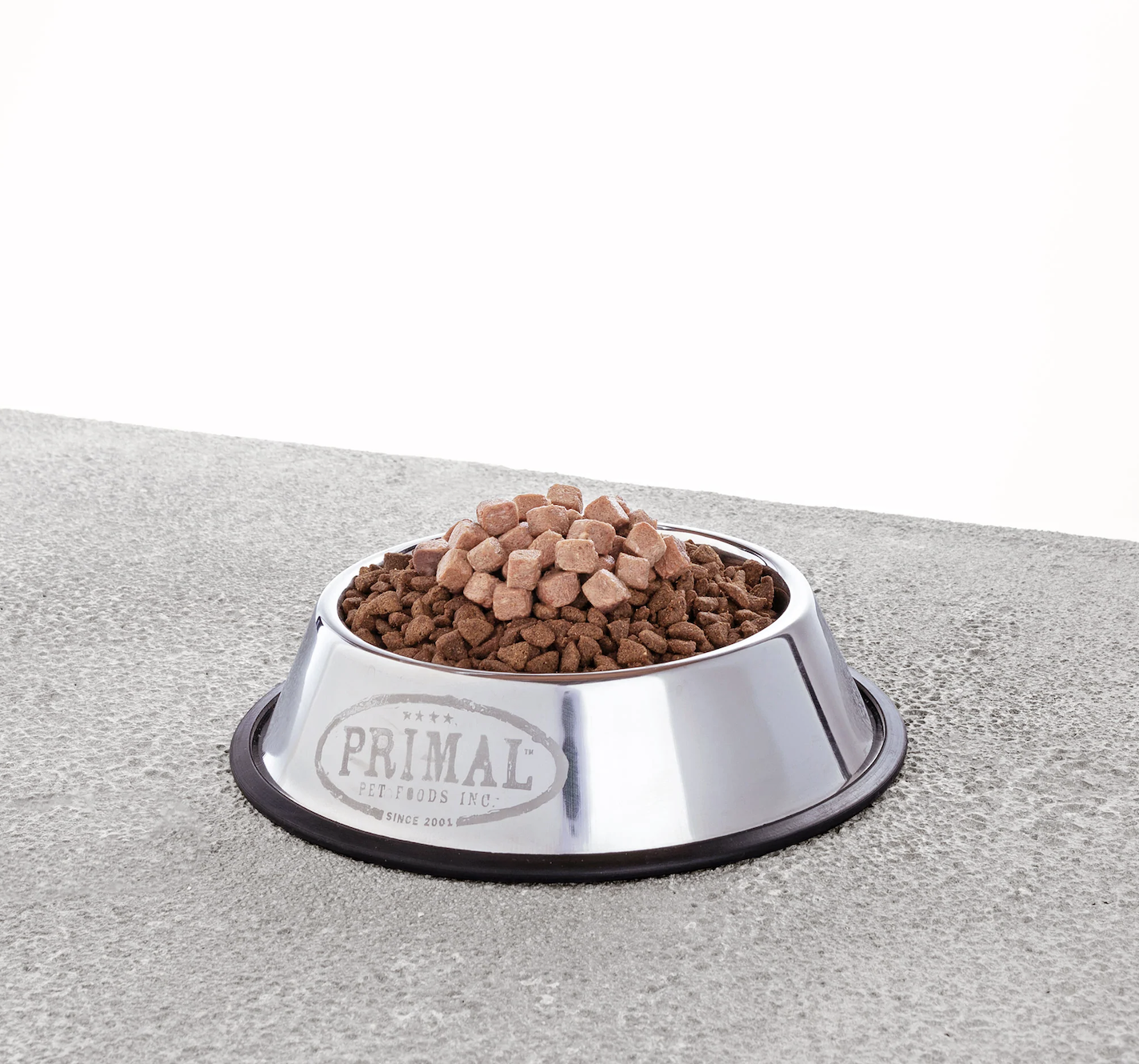Lamb vs. Chicken Dog Food
Feeding your pet a healthy diet is an obvious choice when considering your dog's well-being. Both chicken and lamb are among the popular meat types found in dog food. It's vital to understand how lamb and chicken can benefit your dog’s lifestyle.
This article will provide a comparison between two popular meat sources, lamb and chicken. Here is what you need to know about lamb vs. chicken dog food.
Benefits of feeding lamb to dogs
Lamb is a more novel protein when compared to chicken, but it's becoming more popular in dog food. You can feed lamb as a whole meal or combine it with other ingredients in your dog's regular food. Let's have a look at a few of the benefits of lamb for dogs:
Lamb is a great source of protein that helps build and maintain body tissue and muscle in your dog.
Lamb is full of vitamin B12, niacin, all nine essential amino acids, and dietary fats. All these are important to sustain your dog’s energy and keep their hair and skin healthy.
Lamb is a source of Omegas, which help keep your dog’s coat healthy and shiny.
Lamb is rich in iron, which helps in the formation of red blood cells and hemoglobin. Iron is necessary for certain enzymes in your dog's body to function normally.
Lamb is easy to digest and can actually soothe gastrointestinal distress in dogs.
Dogs find lamb meat especially delicious. It is a perfect protein option for picky eaters.
Lamb is great for dogs that are allergic to other types of meats or have food sensitivities.
Benefits of feeding chicken to dogs
Chicken is a lean protein that's frequently found in dog foods. It provides several benefits for dogs. You can feed your dog chicken as a whole meal or combine it with other ingredients in his regular food. Let's have a look at some of the benefits of chicken for dogs:
Chicken is a good source of protein for dogs and provides them with energy.
Chicken is a rich source of omega-6 fatty acids, which are good for the skin, coat, and joint health.
Chicken is lean meat that is low in fat. It doesn't add too many extra calories to your dog's diet.
Chicken contains glucosamine and essential amino acids for healthy bones.
Chicken helps to build lean muscle mass. It is ideal for overweight dogs.
Chicken breast is full of vitamins B, phosphorus, zinc, and antioxidants.
If your dog has been vomiting or is sick and has no appetite, chicken might help soothe their tummy troubles.
Precautions while giving chicken and lamb to your dogs
Some pet parents choose to feed their dogs cooked chicken or lamb meat, while others choose to feed it to them raw. While both chicken and lamb meat are great foods for dogs, there are a few things you should keep in mind when feeding chicken or lamb to your dog.
The chicken or lamb meat that you feed to your dog should be plain, without any added sauces or seasonings. These often contain ingredients that may be harmful to your dog, such as salt.
Avoid feeding cooked chicken or lamb bones to your dogs. They tend to splinter and can result in choking.
Raw lamb bones are nutritious and packed full of calcium and phosphorus, which your dog needs to strengthen their own skeleton.
Lamb and chicken organs can also make a nutritious addition to your doggy’s diet. They must be fed in moderation to avoid digestive upset.
Dogs with certain medical conditions or who have compromised immune systems should not be given raw lamb meat.
Chicken ranks among the top 10 allergy-inducing ingredients. Before feeding chicken to your dog, you need to make sure your furry friend is not allergic to chicken.
Pet Parent Tip: Stop feeding your dog chicken or lamb immediately if you notice any allergic reaction or unusual symptoms.
Quick rundown: lamb vs. chicken dog food
Taste: Every dog has their likes and dislikes. So, it's difficult to gauge a universal best flavor for dogs. Often, dogs are drawn to meats with stronger scents. This makes lamb the number one pick here due to its succulent scent.
Nutritional value: Speaking of nutritional profile, chicken is our obvious pick. Chicken is an excellent source of lean protein and is low in saturated fat. Lamb has high protein and fat content, and it's great for your furry member unless your dog is overweight.
Price: Chicken dog food is often much cheaper and more affordable than lamb. That’s why many dog owners opt for a chicken blend.
Lamb vs. chicken dog food: Which is best?
When it comes to lamb vs chicken dog food, the honest answer is: 'whichever works best for your dog.' Different dogs have different dietary needs based on their energy levels, food sensitivities, and even food preferences. You should select the type of meat that can best support your dog's lifestyle.
The chicken will suit your less active, overweight, or senior dog the best. On the other hand, lamb dog food could be a better option for dogs who have sensitivities and food allergies. You can consult your vet to determine the most suitable protein source for your furry companion.
In closing
Educating yourself on your dog's diet and nutrition requirements is the best way to stay informed and keep your dog healthy. Overall, both lamb and chicken are outstanding ingredients to include in your dog's food. Unless your pup is allergic to lamb or chicken, they can safely eat either of these on a regular basis.
Chicken is high in lean protein content and low in fat, whereas lamb is red meat and offers a higher fat content. They can be healthy for your pup for different purposes. You should choose the one that suits your dog’s needs the best.
If you have any further questions, please do let us know.
Until next time everyone!



